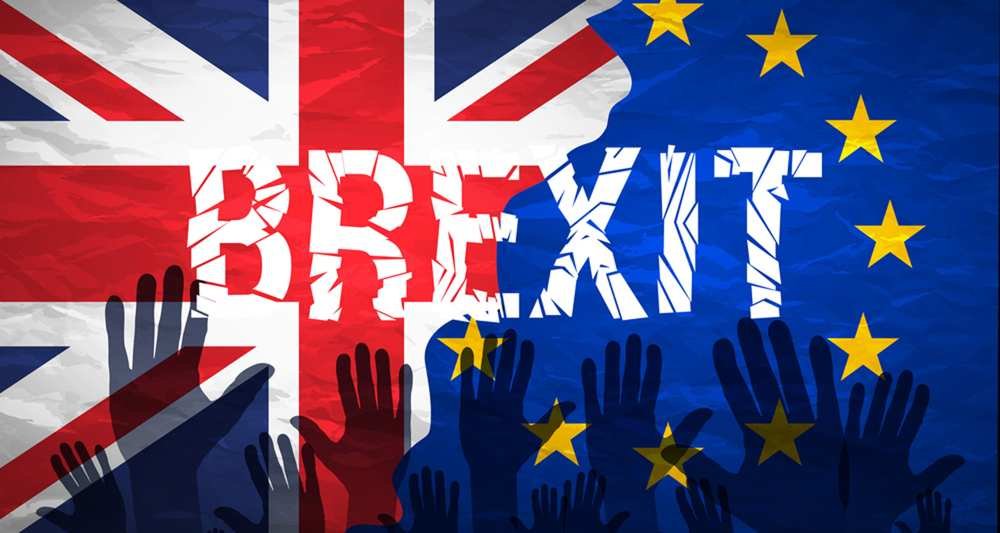Brexit: A complicated puzzle in Europe

TEHRAN - The conflict between the UK and the European Union continues to dominate the United States from Europe. These conflicts have entered a new era in recent days. In sum, many experts and analysts believe that there is no prospect of British withdrawal from the EU and the success of the talks. These days there are controversial news about Brexit talks and its fate.
Some sources state that the departure of Britain from the European Union is inevitable and should be respected by the British citizens last year! However, some European sources believe that British withdrawal from Europe alone won't happen. There seems to be a complex game about Brexit.
This game will be even more complicated when we have Theresa May's government and its equations on one side and the equation of the United Europe leaders on the other side. What is certain is that neither of the two sides of the equation can be a reliable source for British citizens, especially those who have voted for leaving the European Union.
As Independent reported, Ireland’s prime minister has raised the spectre of a ‘no deal’ in Brexit talks, warning that Britain has yet to propose anything that “remotely approaches” a “workable and legally operable” solution to the Irish border issue. Leo Varadkar said if no “substantial” progress was made ahead of a Brussels summit next month there might be no withdrawal agreement, with Britain crashing out on WTO terms.
The taoiseach’s intervention comes amid continued deadlock in Theresa May’s cabinet over how to approach the issue of customs and the border – with the lack of agreement among her own ministers translating into a lack of progress in Brussels.
“If we are not making real and substantial progress by June then we need to seriously question whether we’re going to have a withdrawal agreement at all,” Varadkar told reporters on the doorstep of an EU summit in the Bulgarian capital of Sofia.
“We stand by the text of the withdrawal agreement and the text of the protocol published in March as does the task force and the 27 member states that are behind us.”
Earlier this week, EU chief negotiator Michel Barnier told the EU27 foreign ministers at a meeting in Brussels that there had been no substantial progress on any of the main Brexit issues since March, and that discussions on the future trade relationship had not even started beyond basic introductory chats.
Varadkar added: “If the UK wants to put forward alternatives to that whether alternative text to the backstop or an alternative future relationship between the UK and the EU, we’re willing to examine that.
“But we need to see it written down in black and white and know that it is workable and legally operable. And we’ve yet to see anything that remotely approaches that.”
Theresa May and Varadkar held a lunchtime bilateral meeting at the Sofia summit on Thursday. The summit’s main topic is the integration of the western Balkans region, but Brexit, the Iran nuclear deal, and trade have inevitably reared their heads of the sidelines of the meeting.
The UK Cabinet is divided between two options for customs procedures after Brexit, both of which were presented by the government in a paper published in August of last year.
The EU has already said UK plans for a so-called “customs partnership” are based on “magical thinking” and that a separate, vaguer proposal involving technology called MaxFac (“Maximum Facilitation”) would not prevent a hard border in Ireland.
Both sides say they want to avoid the return of a hard border on Ireland, as secured under the Good Friday Agreement.
The UK and EU also both need to agree how the so-called “backstop” to the Ireland question – which come would into effect if no other solution was found – would work in practice.
Though the backstop was in principle agreed in December, both sides have now begun to interpret the ambiguous text of what they agreed in different ways. Downing Street says the policy would keep the entire UK aligned inside the customs union to prevent a hard border on Ireland, while the EU has said the agreement would keep Northern Ireland in the customs union, and introduce customs checks at Irish sea ports between Northern Ireland and Great Britain.
The first round of Brexit talks has ended without achieving the expected results. The first round of negotiations between senior British and EU officials in Brussels ended up with little agreement. Following these talks, the value of Pound Sterling has dropped. David Davis, the British conservative politician and Brexit Minister has emphasized that Britain is willing to withdraw from the EU even without reaching an agreement.
The fact is that now the British exit strategies of the European Union are more and more disturbed than ever before. This turmoil and collapse is resulted from lack of clear prospects for the outcome of the Brexit negotiations. On the one hand, European officials believe that in order to face the repeat of the British referendum of 2016 in other EU member states, it is necessary for London to pay high expenses to leave the EU. On the other hand, Britain, as the main trading partner of many EU countries, is trying to use their economic credibility on the path to political scrutiny.
